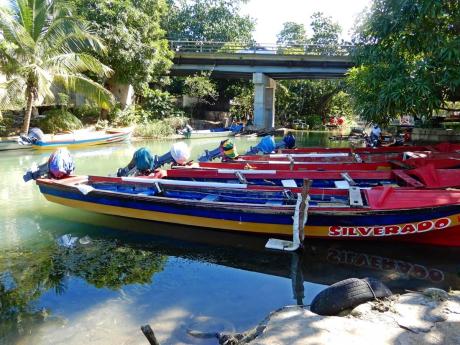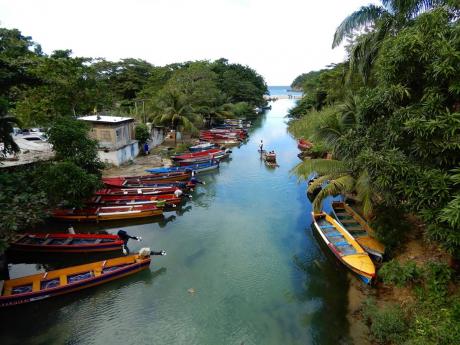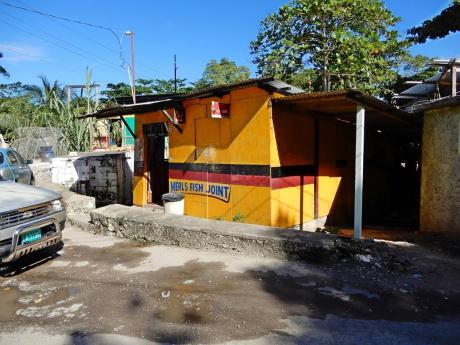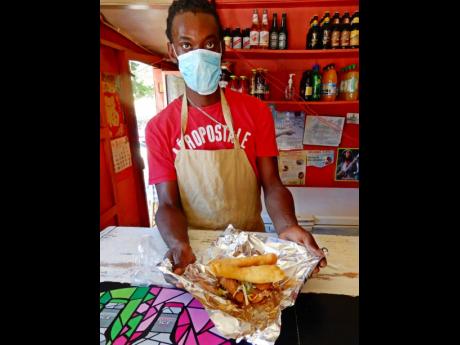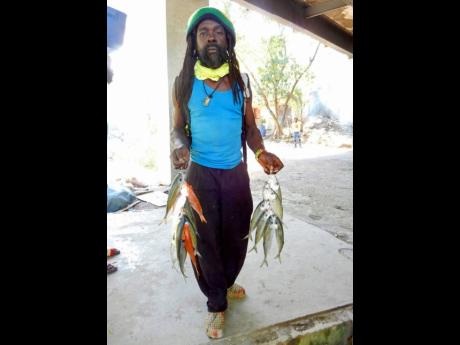Take a look under the bridge - White River provides economic opportunities
When next you drive across the White River bridge at the St Ann and St Mary border, take some time out and go have a look under the bridge; you will be pleasantly surprised.
There you will see ordinary Jamaicans trying to make a living on a daily basis. You will see more than just fishermen with boats arriving from the wide-open Caribbean Sea with their catch, you will see cookshops that prepare those fish in the most tantalising ways, and serve them with festival and bammy, a favourite Jamaican dish.
You will see rafts men with idle rafts, business taking a beating because of the COVID-19 virus. You can even get your car washed by men who offer that service.
Further along the banks of the 27-kilometre river, there are several business entities geared at both overseas and local guests, which have been impacted by the current pandemic.
For Jamaicans familiar with the White River, what goes on under the bridge is by far the most popular activity associated with the river.
There is no shortage of fish there, just a shortage of customers as COVID-19 takes its toll on businesses under the bridge, as it is doing all across Jamaica.
Andrew Peat, of the White River Fishermen Association and a lifetime fisherman, said all 45 members of the group have had their businesses affected by the coronavirus.
“Fish sales have declined a lot because of the COVID because nobody is working,” he pointed out
“For us, there’s no other alternative to make money at this moment; some fishermen used to do (fishing) part time and work in the hotel industry and that basically close down, so everybody has to turn to fishing full-time,” he explained.
Thomas, a cook at Merl’s Fish Joint, situated on the bank of the river and the most popular of the fish serving restaurants in the vicinity, dated the establishment beyond his years and has seen the impact of the coronavirus on the operation of business.
“It slow up everything, it mash we up,” he said. “But we haffi fight wid it said way,” he added.
The pandemic has also seen a shift at Reggae Hill, a popular entertainment spot located just upstream and which was designed mainly for cruise ship passengers. Operator, Samuel Wieselberg, said he has been forced to reduce staff to a skeletal figure, and reinvent the product to accommodate more Jamaicans during the pandemic.
“In order to serve the local market, we created a cabana service, we also had to change our whole food and beverage mentality by creating a whole new menu. It’s been surprisingly successful, people really loving it and they’re making reservations,” Wieselberg said.
Each week thousands of people, locals and foreigners, would generally make use of activities that are along the White River.
Operator of Calypso Rafting, Bobby Marsh, pioneered the concept of river rafting on the White River in 1987, long before other businesses emerged to make use of the river in any organised manner. Born by the river, as he asserted, he owns property that the river runs through, he possesses knowledge of the emergence of economic activities tied to the White River and believes that it, more than any other river in Jamaica, contributes to people’s economic well-being.
“The White River is probably the most economically productive river in Jamaica, it is a very productive river,” Marsh declared in a chat with The Gleaner.
He estimates that there are hundreds of persons who directly make a living off the White River, and thousands by extension, because of the range of activities associated with the river.
“Believe you me, they have legal, illegal and all kinds of people who make a living off that river. I hire the whole of Middle Street village (in Exchange); most of them work with me,” Marsh said.
Since the advent of rafting on the White River several decades ago, other businesses that make use of the river have emerged, including Chukka Caribbean Adventures in the White River Valley, Irie River, Spanish Bridge, Blue Hole, and Reggae Hill, among others. All these are in addition to individuals who find ways and means to benefit from the river.
From an industrial perspective, the river is also valuable. There are three water supply connections and two hydro-electric plants connected to the river that consistently dumps 44 million gallons of water per hour into the sea.
Marsh said the river has been kind to its users, with hardly any flooding reported over the years.
“The only part that ever flood out is down at the lower part where the old bridge was. It did wash it out one time, wash out my business place, too.”

